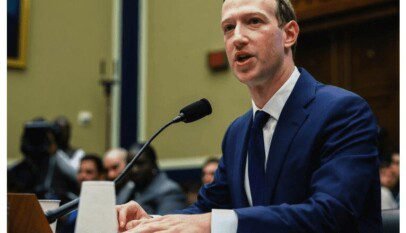
Zuckerberg says Facebook is pivoting to privacy after year of controversies
The Facebook CEO says integrating messaging apps will help protect users’ privacy, but experts disagree
For 15 years, Facebook has pushed, prodded, cajoled, lured and tricked billions of people into sharing the most intimate details of their lives online, all purportedly in service of making the world “more open and connected”.
On Wednesday, the company’s CEO Mark Zuckerberg put forward a new idea: doing the opposite.
“As I think about the future of the internet, I believe a privacy-focused communications platform will become even more important than today’s open platforms,” he wrote in a blogpost announcing his new “vision” for social networking.
Facebook and Instagram are “the digital equivalent of a town square”, he wrote, but people increasingly want to spend time in “the digital equivalent of the living room”.
“Privacy gives people the freedom to be themselves and connect more naturally, which is why we build social networks.”
The brass tacks of Zuckerberg’s announcement relate not to Facebook’s core feature – the news feed – but to a previously disclosed plan to integrate the messaging services of its three apps: WhatsApp, Messenger and Instagram.
This new messaging service will be built with privacy in mind, Zuckerberg said, with a focus on features such as end-to-end encryption and ephemerality, ie automatically deleting messages after a certain period of time.
Critics of the company greeted Zuckerberg’s suggestion that the product update is about privacy with instant skepticism. Facebook’s reputation has been shredded by years of scandal over issues ranging from data misuse and data breaches to the hijacking of democratic elections and fueling of hate and violence.
“I strongly support consumer privacy when communicating online but this move is entirely a strategic play to use privacy as a competitive advantage & further lock-in Facebook as the dominant messaging platform,” tweetedAshkan Soltani, a former chief technologist for the Federal Trade Commission. “While positioned as a privacy-friendly play, its timing suggests a competition play to head off any potential regulatory efforts to limit data sharing across services.”
Jonathan Albright, the director of the digital forensics initiative at the Tow Center for Digital Journalism, warned against conflating the increased “platform security” that comes with end-to-end encryption with “user-focused privacy improvements”.
“Privacy is really about…





























